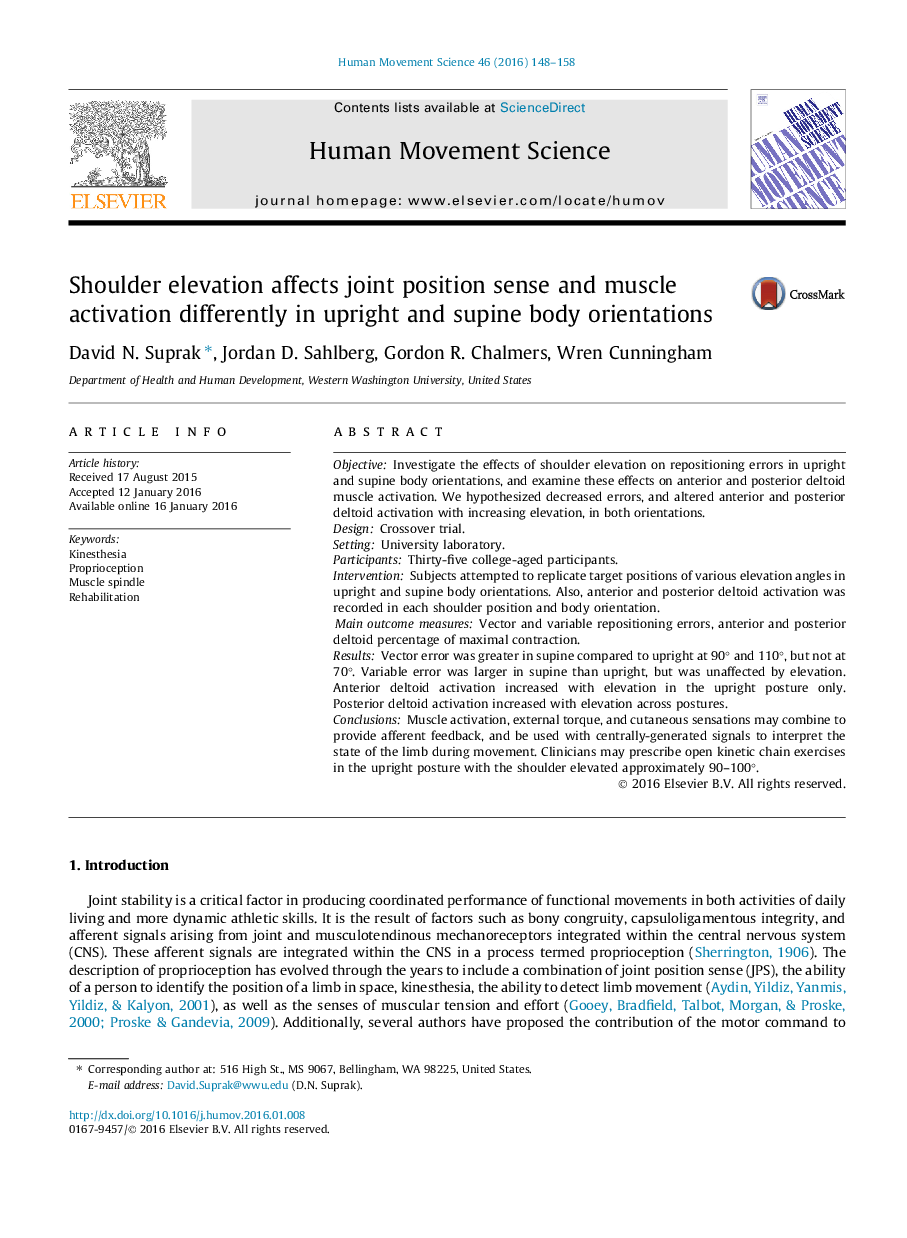| Article ID | Journal | Published Year | Pages | File Type |
|---|---|---|---|---|
| 928213 | Human Movement Science | 2016 | 11 Pages |
•Shoulder position sense and muscle activity are tested across elevation in upright and supine.•Repositioning accuracy increases with increased elevation in upright, but decreased in supine.•Anterior deltoid activation increases with increased elevation in upright, but not in supine.•Posterior deltoid activation increased with elevation, regardless of body orientation.•Muscle activity may be a major contributor to repositioning accuracy.
ObjectiveInvestigate the effects of shoulder elevation on repositioning errors in upright and supine body orientations, and examine these effects on anterior and posterior deltoid muscle activation. We hypothesized decreased errors, and altered anterior and posterior deltoid activation with increasing elevation, in both orientations.DesignCrossover trial.SettingUniversity laboratory.ParticipantsThirty-five college-aged participants.InterventionSubjects attempted to replicate target positions of various elevation angles in upright and supine body orientations. Also, anterior and posterior deltoid activation was recorded in each shoulder position and body orientation.Main outcome measuresVector and variable repositioning errors, anterior and posterior deltoid percentage of maximal contraction.ResultsVector error was greater in supine compared to upright at 90° and 110°, but not at 70°. Variable error was larger in supine than upright, but was unaffected by elevation. Anterior deltoid activation increased with elevation in the upright posture only. Posterior deltoid activation increased with elevation across postures.ConclusionsMuscle activation, external torque, and cutaneous sensations may combine to provide afferent feedback, and be used with centrally-generated signals to interpret the state of the limb during movement. Clinicians may prescribe open kinetic chain exercises in the upright posture with the shoulder elevated approximately 90–100°.
